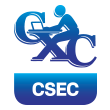CXC hosted a one-day stakeholder meeting with representatives from tertiary institutions across the region on Thursday 8 June at its Headquarters in Barbados.
The interactive discussion featured strategies for collaboration, feedback on the work of CXC and recommendations for the future collaboration, as well as challenges faced by the tertiary institutions and CXC.
CXC Registrar, Glenroy Cumberbatch presented the Council’s suite of qualifications to the stakeholders. These are Caribbean Primary Exit Assessment (CPEA), Caribbean Certificate of Secondary Level Competence (CCSLC), Caribbean Vocational Qualification (CVQ), (Caribbean Secondary Education Certificate (CSEC), Caribbean Advanced Proficiency Examination (CAPE) and CXC Associate Degree (CXC-AD).
He revealed that CAPE is the most recognized qualification with 67 units comprising the 35 subjects offered taken by 6th form students, private institutions as well as community colleges. A boost in candidate numbers was recorded in 2012, and for 2016 there were 30, 859 candidates.
A list of new subjects, called the New Generation CAPE subjects, have been added to the CAPE offering to further diversify the skillset of candidates. These new subjects are Agricultural Science, Tourism, Digital Media, Performing Arts, Physical Education and Sports, Logistics and Supply Chain Operations, Animation and Game Design, Green Engineering, and Financial Services Studies.
The Council has revised and will continue to revise some of its subject syllabuses to adapt to changes in the education environment. English is among those subjects and from 2018 a School Based Assessment (SBA) will be added to allow students to engage in debates and discussions on various topics in the classroom. The Mathematics syllabus has also been revised and now has SBA as well.
Given the rise in unemployment among young people, the Registrar said that some persons lack the vocational training needed in the workplace and therefore the CVQs have been incorporated into some CSEC subjects in the form of an of SBA. This will provide learners with a skill. Among the many disciplines offered at CVQ are Fabric Design, Welding, Commercial Food Preparation and Furniture Making. The CVQ has seen an increase in candidate entries since 2014 with Trinidad and Tobago providing the largest number of candidates.
CSEC, CXC’s flagship examination, will also see new subjects added to its current list of 34.
The CXC Associate Degree was also discussed with stakeholders. The Registrar noted that the Council is looking to enrich the quality of associate degrees offered. During the discussion, it was suggested that courses in critical thinking, philosophy and comparative religious studies be considered as core subjects for the associate degree.
CXC is moving swiftly towards having a fully operational Electronic Testing (E-Testing) System and Director of Operations, Stephen Savoury briefed the stakeholders on the e-testing initiative. The first E-Test was successfully administered in the January 2017 CSEC multiple choice examinations. The Council plans for the January and May/June exams in 2018 to be online whereby students can access the tests in a special browser on devices of their own or those provided by the institution. However, the E-Test will not be mandatory and the choice to use traditional testing methods would still be available.
This shift will improve the quality of the service provided by the Council, meet the current global technological trends as well as ensure further inclusion of special need or disabled persons taking CXC examinations.
Mr Savoury stated that from January 2020, examinations will be offered on demand which will be beneficial to private out-of-school candidates taking the exams. This means that tests will be administered more than twice per year and to give more choices for candidates regarding when they want to sit the examinations.
Participating Territories will come on board with E-testing when they are equipped to facilitate administration of e-testing.
Savoury also revealed that a learning hub will be available to candidates from September 2017. The hub he said will act as a platform for the exchange of knowledge and notes among users. Candidates will have access to E-books and other resources along with an exhaustive set of information to help with studying for the examinations.
Assistant Registrar, Public Information and Customer Services, Cleveland Sam gave the stakeholders a glimpse of the international recognition that CXC qualifications have gained over the years. Statistics show that the Caribbean sends 40 students for every 10,000 college aged students to the United States, this is double what any other region in the world sends to the US. During the 2013-2014 period, there were 2502 Jamaican students, 1440 from Trinidad and Tobago and 322 from St. Lucia.
CSEC has gained recognition from the Association of Indian Universities where at least 5 subjects at grades one and two are equivalent to the Grade 10 examination of an Indian Board.
SUNY Plattsburgh in the US has found that CSEC effectively prepares students for tertiary study.
Mr Sam said that CAPE has also been well-received with some universities offering students transfer credits and exemptions for their CAPE qualifications. He quoted Dr Siamack Bondari, Chair of Mathematics and Science Department at Saint Leo University, as saying that students who excel in both units of Applied Mathematics and Pure Mathematics at CAPE are able to undertake advanced mathematics and sciences courses at university as they have a strong foundation.
Evelyn Levinson, Director of International Admissions at American University said that if students are able to gain Grade I and II in CAPE Unit 2 subjects they are afforded advanced standing credits at America University based in Washington. The University of Toronto, York University, McGill University, are among schools in Canada that offer credits for CAPE. Sam’s presentation also included testimonials from students who have studied at London School of Economics and Political Science, Oxford University, YALE and Howard University.
Article written by Khrystal Walcott

















